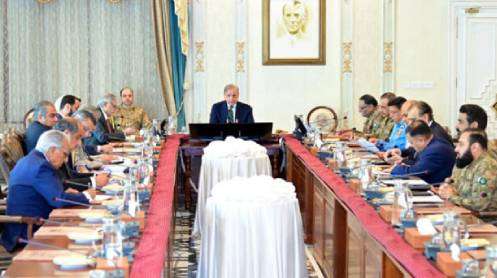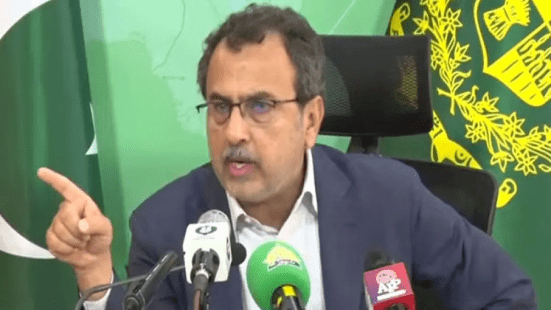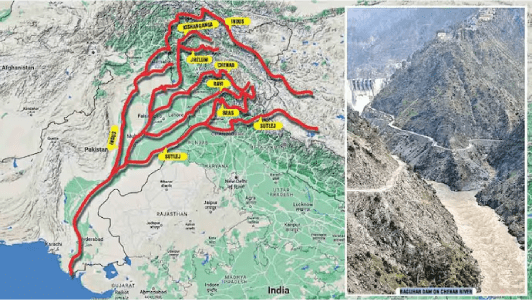ISLAMABAD: Pakistan’s civil and military leadership has issued a stern warning to India, declaring that any attempt to stop or divert Pakistan’s share of water under the 1960 Indus Waters Treaty will be treated as an act of war—a red line Islamabad says it is prepared to defend with the full might of its national power.
This declaration came after India announced a suspension of the landmark water-sharing accord in response to the recent Pahalgam attack, which it blames on Pakistan. In an emergency session of the National Security Committee (NSC), chaired by Prime Minister Shehbaz Sharif and attended by top military and civilian leaders, Pakistan strongly rejected the Indian accusations, terming the retaliatory actions by New Delhi as “unilateral, unjustified, and dangerous.”
The NSC emphasized that the Indus Waters Treaty, brokered by the World Bank, is a legally binding international agreement that does not allow for unilateral suspension. “Water is a vital national interest for Pakistan—a lifeline for 240 million people—and its flow will be defended at all costs,” a statement said.
Among the key decisions announced:
- Suspension of the Wagah-Attari border crossing.
- Cancellation of all SAARC visas issued to Indian nationals, except for Sikh pilgrims.
- Declaration of Indian military attachés in Islamabad as persona non grata, requiring their departure by April 30.
- Closure of Pakistani airspace to all Indian-operated airlines.
- Complete suspension of all trade with India, including third-country transits.
The NSC warned that India’s “reckless provocations” could destabilize the entire region and vowed a strong response to any misadventure. The committee also noted that Pakistan reserves the right to put bilateral agreements, including the Simla Agreement, in abeyance if India continues with its current posture.
Defence Minister Khawaja Asif warned that Pakistan would respond decisively to any Indian incursion. “If India harms even a single Pakistani citizen, they will face the consequences,” he said. He accused India of sponsoring terrorism in Pakistan, citing intelligence reports and the case of captured Indian spy Kulbhushan Jadhav.
Deputy Prime Minister and Foreign Minister Ishaq Dar reaffirmed that Pakistan would not bow to pressure and condemned India’s suspension of the Indus Treaty as illegal. He confirmed that the United Nations Security Council’s permanent members had taken note of Pakistan’s position and considered it balanced and constructive.
Meanwhile, Information Minister Attaullah Tarar said India’s bluster will backfire economically, particularly with the loss to Indian aviation due to Pakistani airspace closure. “We have taken the lead in the battle of narratives and will continue to expose India’s reckless behavior on the global stage,” he stated.
The NSC concluded with a reaffirmation of Pakistan’s support for the Kashmiri people’s right to self-determination and a strong condemnation of India’s continued human rights violations in Indian Illegally Occupied Jammu and Kashmir (IIOJK).







